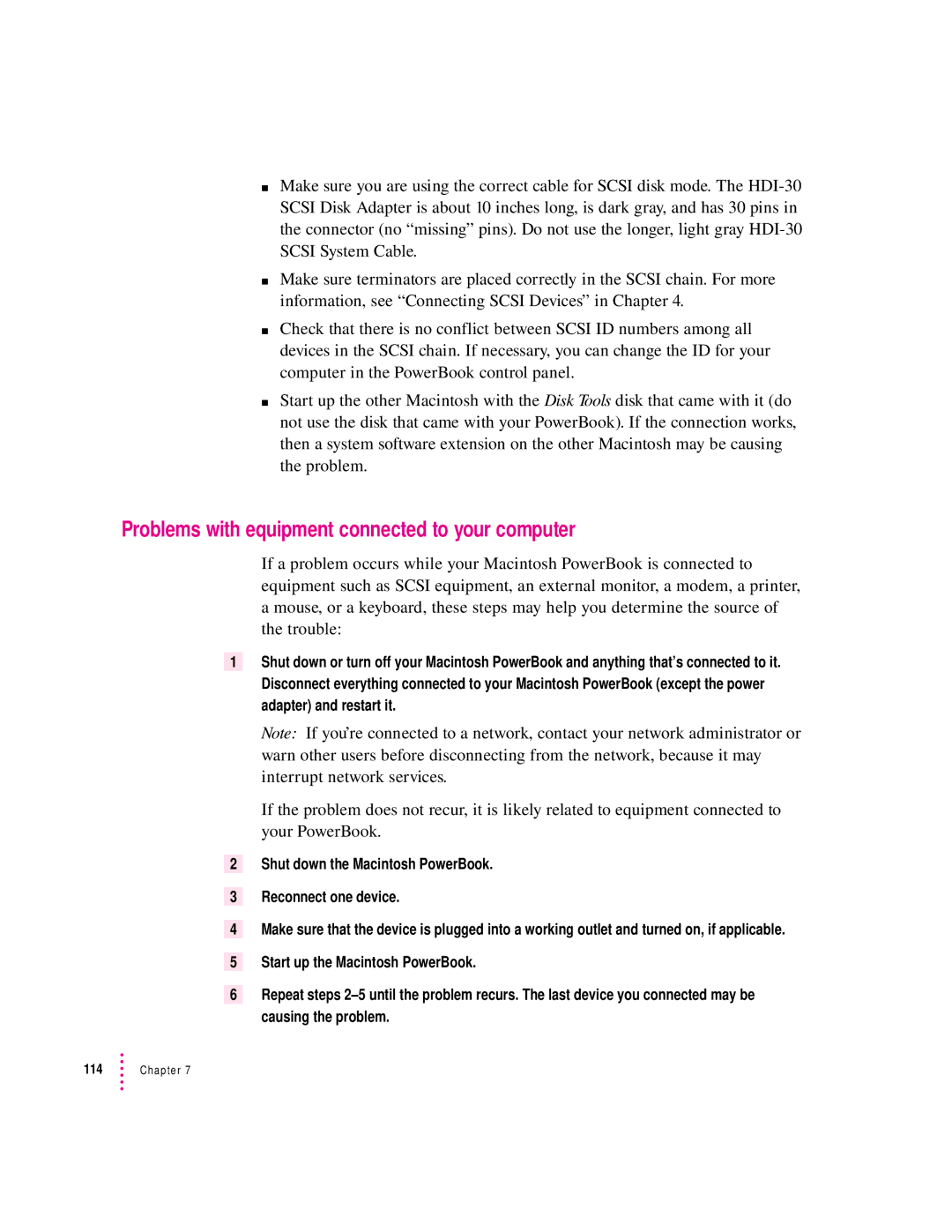
mMake sure you are using the correct cable for SCSI disk mode. The
mMake sure terminators are placed correctly in the SCSI chain. For more information, see “Connecting SCSI Devices” in Chapter 4.
mCheck that there is no conflict between SCSI ID numbers among all devices in the SCSI chain. If necessary, you can change the ID for your computer in the PowerBook control panel.
mStart up the other Macintosh with the Disk Tools disk that came with it (do not use the disk that came with your PowerBook). If the connection works, then a system software extension on the other Macintosh may be causing the problem.
Problems with equipment connected to your computer
If a problem occurs while your Macintosh PowerBook is connected to equipment such as SCSI equipment, an external monitor, a modem, a printer, a mouse, or a keyboard, these steps may help you determine the source of the trouble:
1Shut down or turn off your Macintosh PowerBook and anything that’s connected to it. Disconnect everything connected to your Macintosh PowerBook (except the power adapter) and restart it.
2
3
4
5
6
Note: If you’re connected to a network, contact your network administrator or warn other users before disconnecting from the network, because it may interrupt network services.
If the problem does not recur, it is likely related to equipment connected to your PowerBook.
Shut down the Macintosh PowerBook.
Reconnect one device.
Make sure that the device is plugged into a working outlet and turned on, if applicable.
Start up the Macintosh PowerBook.
Repeat steps
114 | Chapter 7 |
